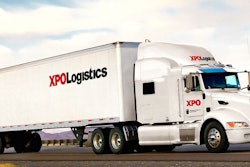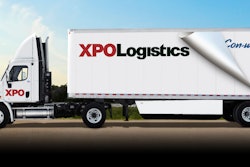
Three trucking company subsidiaries of XPO Logistics Inc. were sued in California on Monday for allegedly misclassifying their drivers as independent contractors, according to The Wall Street Journal.
The class-action lawsuit, filed in Los Angeles Superior Court, argues that drivers for XPO subsidiaries Pacer Cartage Inc., Harbor Rail Transport and PDS Transportation Inc. failed to pay minimum wage, provide meal breaks and rest breaks and reimburse business expenses, among other allegations.
In an emailed statement, XPO Chief Operating Officer Troy Cooper said, “We believe this case is without merit and plan to litigate it vigorously. We are in constant dialogue with our independent-contractor carriers and believe the vast majority of them value the significant benefits that operating independently can bring.”
The trucking companies facing litigation perform what’s known as drayage trucking services, hauling goods the short distance between seaports and nearby rail yards and warehouses, a major link in the national supply chain. Within the domestic drayage market, estimated by research firm FTR Transportation Intelligence as generating $12 billion in annual revenue, the independent owner-operator model is common.
To read more, click here.
Editors Insight: This is not the first time that independent contractors draying containers to and from the Los Angeles-Long Beach port complex have been at the center of controversy. In this particular market, independent contractors have tended to get the short end of the stick as their livelihood has become less lucrative over the years.
There was a time when draymen could make a good income turning containers throughout the day, but growing port congestion, stiffer emissions regulations and higher operating costs (fuel, insurance, etc.) have taken a big bite out of that income. Attempts to unionize draymen have come and gone. Therefore, it seems reasonable that logistics provider firms that employ independent contractors to supplement their full-time workforce make some concessions to improve the working conditions—and pay—for this important link in the supply chain. 1-12-16 By Lara L. Sowinksi


















